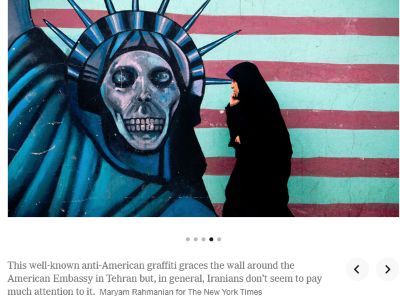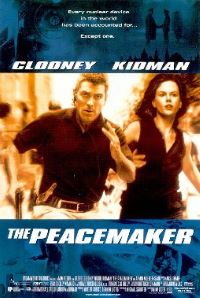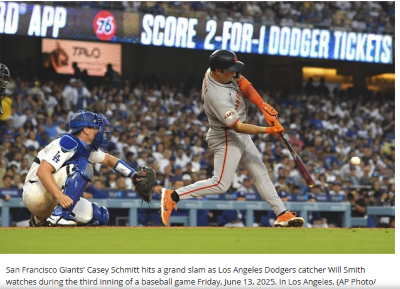Editor’s note: This is the fifth and final post on the American Revolution Reborn Conference. You can read the complete series here.
Conference organizer Zuckerman asked how does one enlist loyalty voluntarily especially if people are not supportive (disaffected). He wondered about nation building and civics in such an environment. We are a story telling species. Gordon-Reed, Harvard University, said people want a narrative, that the story is what people respond to. Anishanslin, CUNY Staten Island, observed that Americans learn about the Revolution from historic sites, that monuments shape public memory. She objected to the cleansing of the story and called for the Iroquois story to be told.
Historic sites like airport best selling biographers are retail operators: they need to tell a good story that resonates with the audience. Gordon-Reed’s own story that launched her public career also had the ingredients of a good story…it could be made into a movie. Her comments that the reborn story of the American Revolution is needed but that the new national narrative has to be coherent and connect to the American people so they have a stake in the story is valid. Is the academy up to the challenge?
Since the American Revolution Reborn conference, two reviews on the same new book on the American Revolution encapsulate some of the issues raised in this essay and the challenges we face. Revolutionary Summer: The Birth of American Independence by Joseph Ellis might qualify as one of those airport bestsellers as it was written by a biographer of Washington, Adams, and Jefferson, the first three presidents. Reviewer Andrew Cayton, Miami University, lauds Ellis for achieving his goal of undermining the myth that America was born by an “Immaculate Conception” of an organized and united people fighting in local militias. On the other hand he criticizes as the story told as inadequate:
It simply won’t do to talk about a revolutionary summer in which the only voices are those of prominent white men and recollections of 15-year-old Joseph Plumb Martin, written decades later.
The American Revolution was a civil war, a messy war, and a war where many Americans supported the king as they had in the French and Indian War. The review ends with the observation that anything was possible.
But anything didn’t happen. America did. The review by Michiko Katutani (NYT) recognizes how seemingly easy it seemed for the British to win after the Battle of Long Island. But then she asks a counterfactual question: would the destruction of the Continental Army have ended the war? One might add, would there be a United States of America if Washington had been defeated and not lived to fight another day with his renewed army? Whereas Cayton’s review ends with anything is possible, Katutani’s review ends with the question of could another Washington have been found who would have ended up being as successful as Washington turned out to be? So even if the colonies one day became free from England as Canada, India, and most of the British Commonwealth eventually did, would it have become just another country or would it have become Lady Liberty’s beacon to the world?
I saved the best for last because in his comments is hope. Marcus Rediker apparently is one of the recognized characters of the American Revolution history community. He brings a theatrical presence to his presentation that young scholars generally dare not attempt and gray beard/hairs generally can not do. Since this was my first time experiencing him as far as I recall, I really enjoyed the show…plus he had something to say that should be the basis for constructing the new national narrative of America’s birth.
Rediker echoed the call for a new national narrative. He predicted that the one which emerged would be unacceptable to the political establishment because it would be deemed insufficiently patriotic and a creation by enemies of the U.S. government. These comments may derive from a bad experience a few years earlier when an attempt to develop a new national history curriculum became caught up in the Beltway maelstrom. The people who most loudly expose their small-minded ignorance of America’s past sabotage the potential of America’s future. Ivory-tower academics who can’t say that the world is a better place because of the existence of America don’t help their cause either. What country has a national narrative that exclaims you should not take pride in the birth of your own country? If the end product of the conference is to create a national narrative so ivory tower academics can feel virtuous in instructing We the People on how we should behave, then what has changed since centuries ago when the visibly elect sermonized that We the People needed to be regulated and legislated to be better than we are for our own good? People who don’t believe in We the People unless they defer to them are not likely to craft a narrative that would resonate with We the People.
Rediker actually knows that a better story can be told that would resonate with the American people. He is the one who said what was missing from the conference was the recognition of the profound power of the revolutionary idea of the American Revolution – that humans can create, that humans can make a revolution, of human agency. There is more to life than being born, your hyphen doesn’t define you, your dreams do. Those have been the ideas that sparked this country, that drew people to it. These ideas went viral and impacted the world; they still do today even as we have fallen short of them. After the Supreme Court ruling on the Defense of Marriage act, an immigrant American wrote, “America has always been a beacon for those unable to live a life of liberty in their homelands” and that “what first attracted me to this country: its promise of fairness and equality” (Mani Suri, NYT 7/1/13).
Rediker used terms like the human fire and the fierce glowing to express the power of these ideas; the now reopened Lady Liberty’s torch remains important to the world. We should celebrate the martyred who sacrificed themselves for the good of the nation and create a national origin myth based on these ideas. What makes him think such a narrative would be deemed unpatriotic? Because it would show that Americans disagreed? That war isn’t Hollywood? Because it includes women, Africans, the Iroquois, Palatines, the South, New York, and the Scotch-Irish, all the groups the New England historians of the 19th century excluded as they privileged themselves and the role of their ancestors? How would a national narrative based on all the peoples who contributed to the founding of the country be anti-patriotic? What better way is there to reach out to the newcomers to the country than in showing our birth was a team effort and now they are part of the team?
In the real world, the world in which we actually live, there is no alternative to American leadership. We may lead badly (Iraq), we may be bullied until leading from behind until we can get out (Libya) or we may not lead at all (Syria). Whatever the case, America is the key. Ulrich herself suggested one reason: the American Revolution is important because it is embedded in current events. In an article in the New York Times on June 22, 2013, Columbia law School graduate and Japanese political activist on behalf of one-person, one vote in his home country, said,
American know that democracy is something that must be constantly fought for. Japan never had a revolutionary war. Democracy was given to us by MacArthur.
America’s role remains to help make the world safe for those who fight for what we first began to win in the American Revolution.
A journey of one thousand years begins with a single day. July 4th was that day. That journey continues. Steps have been taken, more will be. The challenge is to create a new national narrative that helps We the People take the next step on that journey because the eyes on the world are still upon us and we still have a rendezvous with destiny as the last best hope of humanity.
Thank you Michael for this conference and I look forward to the next one.






Explain to me again, why is it that you and others feel a need for a “new narrative”?
Why isn’t the old tried and true narrative sufficient? Of course, new research examining from new angles with fresh perspectives is always in order. Certainly expanding on the narrative through examination of new stories of individuals that were involved allows for a more inclusive narrative. In this respect, we can lift a lesson from the Civil War buffs both professional and private who continue to examine the life, times and narrative of each and every participant. The narrative is never complete, however, it is complete enough to tell the story of “life, liberty and the pursuit of happiness” within a framework of hopefullness, freedom and equality for all. With all our warts and blemishes taken into account, this living narrative vision has not existed anywhere else on the surface of this planet since July 4th, 1776.
The question you are actually asking is….how do we construct and deliver a concise narrative that carries both the story essence and the vision of hopefullness. What makes our democracy so interesting is the simple fact that everyone’s “vision of hopefullness” at any given moment isn’t always the same. Without question, Loyalists and Patriots in 1776 wanted the same thing only their vision was different. This is always true on every issue which is why our experiment is so darn unique and exciting. Go back and reread Alexis de Tocqueville’s “Democracy in America” (1835). The gift he had was that his power of observation was extrodinary. He observed things here in America that he had not observed anywhere else. The problem we face is…whenever we try to explain this part of the narrative we are automatically labeled as flag waving elitists. The point is…we are all born equal, however, our system (our environment) has allowed our vision of hopefullness the opportunity to be formed in a unique manner. It is this baptism under fire, if you will, that makes each of us an American which means that we can accomplish anything we set our minds to. It is this bond of hopefullness which, in fact, transends all race, religion, condition or economic status. Enough, Peter
A very well received twist on teaching the Rev War is one I adopted last year after getting into the second tier names that are not discussed in class. The stories of Henry Knox, John Glover, John Stark, Nathaniel Green, and, my personal new-found hero, Daniel Morgan, make this story come alive in a way that Franklin, Jefferson and Adams could never do. They were aristocracy. Never held a gun in against the British. Risked their lives in signing the Declaration of Independence, but not by standing in front of a British or Hessian bayonet !! The second tier heros, when properly explained, can make this story JUMP from the pages of history.